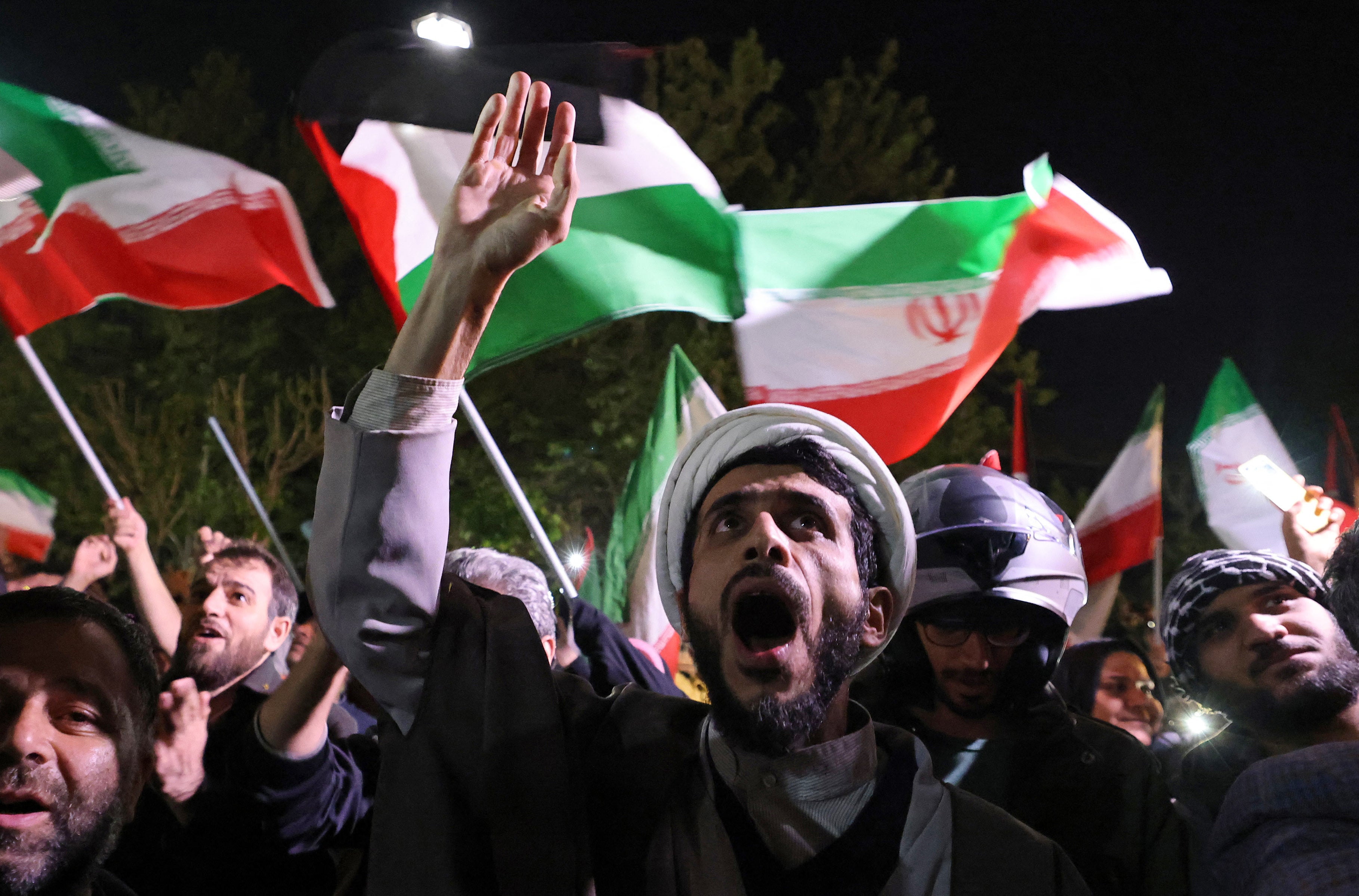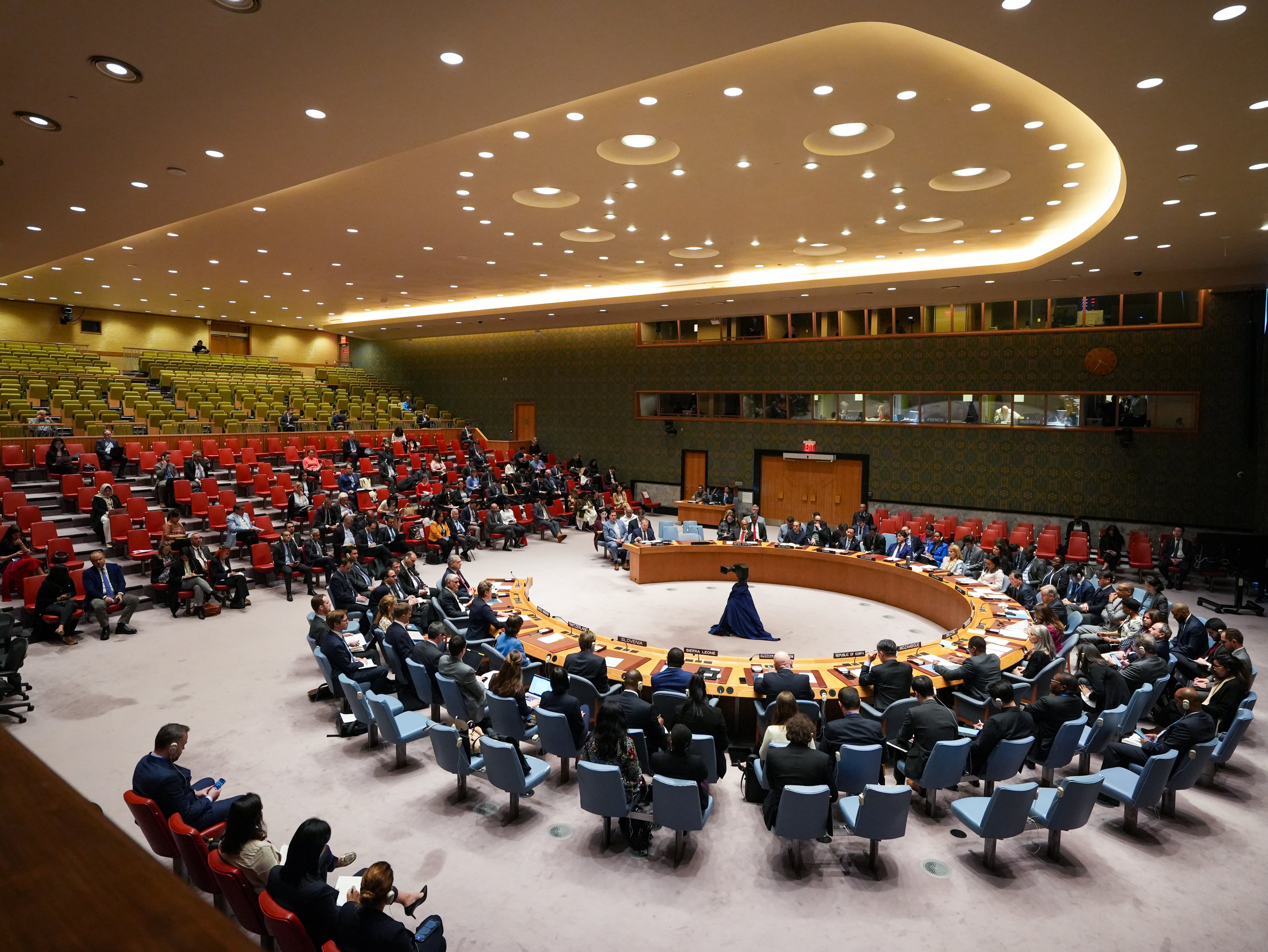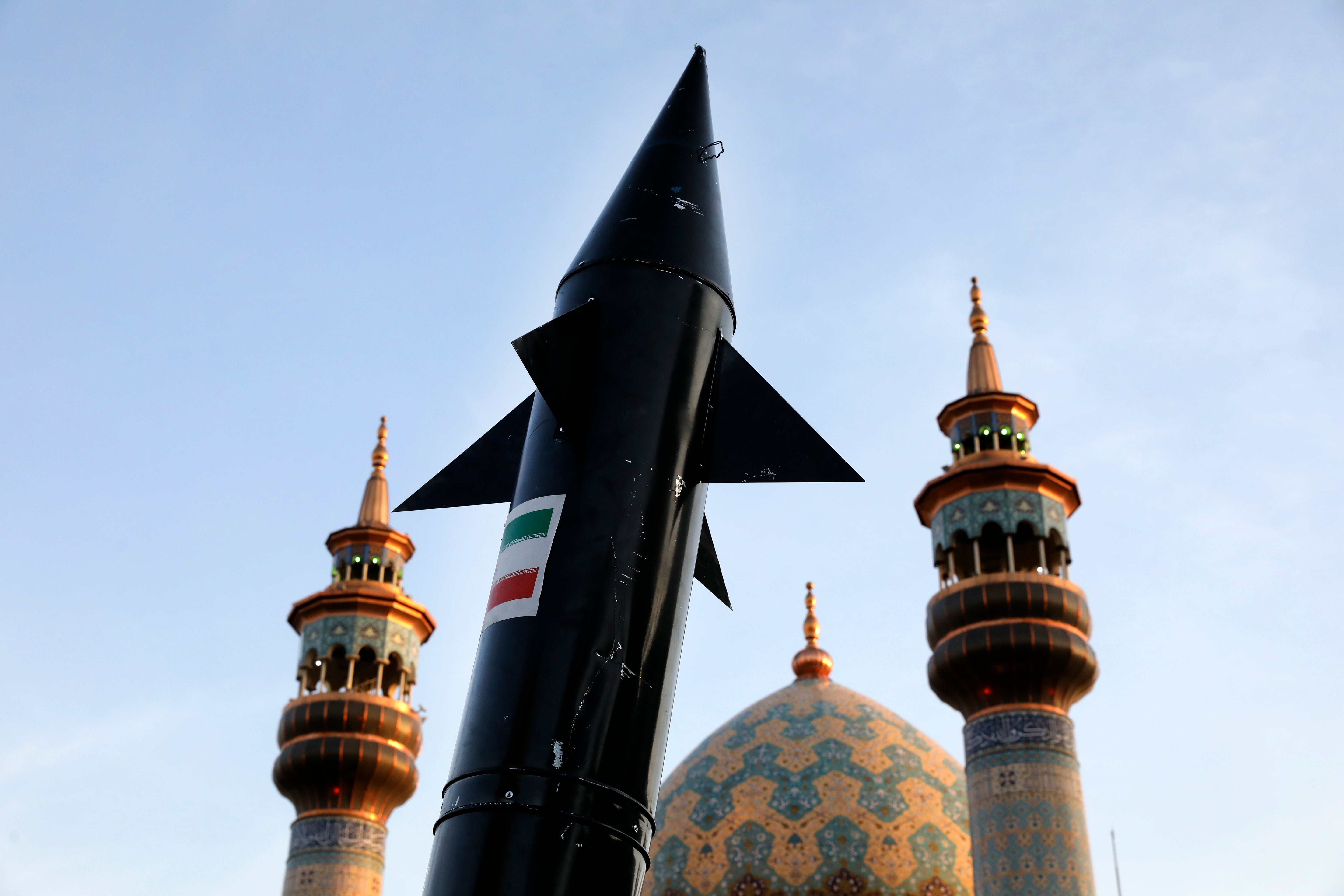Could conflict between Israel and Iran trigger a third world war?
As the UN calls for de-escalation, many fear the conflict could spiral. Author and Middle East expert Dr David B Roberts looks at the likelihood of a regional war tipping over into something much bigger...

The Middle East is heating up. Fears are growing of an increasing spiral of conflict, principally between Israel and Iran, which is already sucking in other regional states as well as international actors like the UK and the US.
The immediate backdrop here is the brutal 7 October Hamas attack on Israel, which killed over 1,000 people and included the taking of hundreds of hostages. Israel swiftly responded with a full-on assault on Gaza, which has killed many thousands more and destroyed swathes of infrastructure.
Iran has long been a key funder of Hamas, as well as Hezbollah, the terrorist group/political party in Lebanon that has engaged in multiple skirmishes and conflicts.
Iran has also funded and supplied the Houthis in Yemen with weapons and allied knowhow, allowing them not only to terrorise Yemeni civilians but to increasingly target international shipping.
The point is that the so-called “shadow” war between Iran and Israel has been going on for decades. Escalation into the situation we are witnessing today was always likely to occur – but how bad will it get?
A calculation for careful reprisals
On 1 April, Israel bombed Iran’s consulate in Syria, killing senior Iranian generals. Iran enacted its response on 13 April, launching over 300 missiles and drones at Israel. Though Iran has sponsored organisations like Hamas and Hezbollah, which have attacked Israel on thousands of occasions, this was Iran’s first ever direct attack on the Jewish state.
However, almost all of Iran’s missiles and drones were shot down by a combination of Israeli, British, French, US, and Jordanian planes and missile defence systems, and the only casualty was a seven-year-old Arab-Israeli girl who is in a critical condition. A failure on Iran’s side? Or a carefully calculated strike that would produce maximum optics with minimal damage?
Tehran gave ample warning to Israel and the US of the plan, allowing the ad hoc coalition to prepare for an imminent strike, and it neither asked nor demanded that its proxy, Hezbollah, deploy a large proportion of its 150,000 rockets – an attack that would certainly have saturated and penetrated Israel’s defences. Moreover, before the missiles and drones were plucked out of the air, Iran’s mission to the UN stated that, with this attack, Iran’s offensive was over – and, it offered optimistically, “The matter can be deemed concluded.”
This reflects the Iranian leadership’s need for a calibrated retaliation against Israel, showing their desire to avenge the destruction of their consulate but not wanting to inflict a strike so deadly that it would draw a vast Israeli (and potentially joint US) reprisal.
This is a perilously narrow line for Iran to walk. The world’s eyes now look to Israel for its reaction to this unprecedented Iranian attack.

Israel will react to Iran’s attack. The leadership in Tel Aviv, like their Iranian counterparts, cannot allow the normalisation of a significant attack by permitting it to go unanswered.
On the lower end of putative reprisals, Israel could continue in an expanded fashion what it has been doing for a long time: targeting Iranian proxy forces and Iranian Revolutionary Guard forces in Syria and Iraq. The wider targeting of Iran-linked groups in Iraq and Yemen might also be on the cards. Though this is a geographical expansion of the conflict, by refraining from attacking Iranian territory, Israel would be – like Iran – carefully signalling that it is calibrating its response.
Small-scale military strikes against Iranian drone production facilities or military assets might also be seen as comparatively limited. An obvious example herein would be a strike against the Behshad, an Iranian vessel widely seen as playing a covert role in directing or aiding the Houthi attacks against international shipping in the Red Sea.
Reprisals also do not need to involve missiles. Both sides have a history of using cyberattacks to disable important institutions and companies. Similarly, Israel is believed to have assassinated Iranian scientists involved in the nuclear programme, though continuing such a policy at a time of such high tensions – when potential targets will be on their guard – would be difficult.
A more provocative Israeli reaction could target Iranian economic infrastructure, such as its oil and gas facilities. This kind of attack could limit Iranian casualties while causing severe harm to the regime’s core mechanism of financing itself. Such an attack runs the risk, however, of knocking out a potentially large portion of Iran’s 3.3 per cent of global oil supply, which could have broad and deep consequences for a fragile global economy.

Where concerns escalate significantly is in relation to scenarios in which Israel targets Iran’s nuclear programme. Israel has previously attacked chemical, biological, radiological, and nuclear facilities belonging to its adversaries, including in Iraq in 1981 and in Syria in 2007 and the late 2020s.
But any attack against Iran would be on a vastly different scale and level of difficulty. If Israel were to strike a significant blow, it would need to undertake a vast operation involving waves of aircraft and the destruction or suppression of Iranian air defences, all against hardened targets far inside Iran. There has been no comparably complex and difficult military operation, at such distance and against such protected targets, in modern history.
Rationality is in the eye of the beholder
The only silver lining to this scenario is that most assume Israel is incapable of launching such an operation by itself. Rather, it would need the US forces stationed in the Gulf to help if there were to be a moderate chance of success, and the US administration has, so far, refused to join any such operation.
Otherwise, as with Israel’s attack on Iran’s consulate, some international norms are clearly being bypassed, so an attack on Iran’s leadership is not out of the question either.
There is a chance that Israel will make the more rational calculation. Its leaders could acknowledge that Iran’s military embarrassed itself with quite such an ineffectual attack; that Israel was lucky the attack was not more sophisticated and did not involve Hezbollah’s forces; that Israel can scarcely afford another $1bn (£800m) defending itself, as it spent on that one night alone; and that the overall global view tilted more towards seeing Israel as the David in the face of the Iranian Goliath, with the Gaza horrors being relegated down the running order.
But rationality is in the eye of the beholder, and Israel is a scarred nation. Centuries of haunting, vicious antisemitism and the horrors of the Holocaust have left swathes of Israel’s society perma-traumatised. The 7 October attacks on Israelis in the one place in the world that is supposed to be safe – Israel –reanimated and reinvigorated their trauma response. The point herein is that the logic as it appears to those based in Israel often has a different hue and calculus from how it appears to those of us writing in comfort elsewhere.
Sanguine expectations from the world’s leading financial companies that the chances of a vast Israeli reaction are slim seem to reflect a New York or London-based calculus, and not necessarily that of the leadership in Tel Aviv.
The scale of Israel’s Gaza offensive, and the horrendous human toll it has taken, is seen nearly the world over as either an overreaction or a military calamity. But the logic according to Israel’s leadership runs differently.
Consequently, there is a depressingly good chance that Israel’s retaliation will also seem like an “overreaction” to those of us based elsewhere. It seems more likely than not that, whatever the specifics of the retaliatory operation, it will be on such a scale that Iran’s leaders will feel compelled to respond.
And here is where wider fears emerge of an ever more spiralling conflict.
If Iran is significantly attacked by Israel, the next round of Tehran’s retaliation is almost sure to include Hezbollah attacking the north of Israel. This is, after all, precisely why Iran has cultivated and supported the group for so long – because of its strategic location and its threat of, and ability to, inflict real pain on Israel.
Such an expansion of the conflict would not stay in the Levant. The Houthis would redouble their targeting of international shipping and renew attacks on Gulf states on the Arabian peninsula, several of whom signed the Abraham Accords peace treaty with Israel in 2000 and host vast US military bases. Jordan, a West-friendly linchpin state in the region that is beset by internal struggles and myriad issues emanating from its Syrian border, is already criticised for defending its airspace from Iranian missiles that traverse it. It is hard to see how it could avoid a much greater degree of entanglement.
It is difficult to see a scenario wherein a truly kinetic conflict does escape the wider Middle East’s confines to affect Europe, eastern or southern Asia, or much of Africa. Equally, British and wider Western interests could still be seriously harmed. Drawn in to support Israel, Western military forces would be avowedly targeted as they defended the skies from Iranian missiles and drones. The geo-economic impact of a smouldering, sporadically heated conflict around the Middle East could catapult the oil price, trashing economic recoveries the world over.
Consequently, with these grimly plausible scenarios before us, Western intervention and engagement is more crucial than ever to stay the hand of all those involved.
Dr David B Roberts is a senior lecturer at King’s College London and is the author of ‘Security Politics in the Gulf Monarchies’





Join our commenting forum
Join thought-provoking conversations, follow other Independent readers and see their replies
0Comments